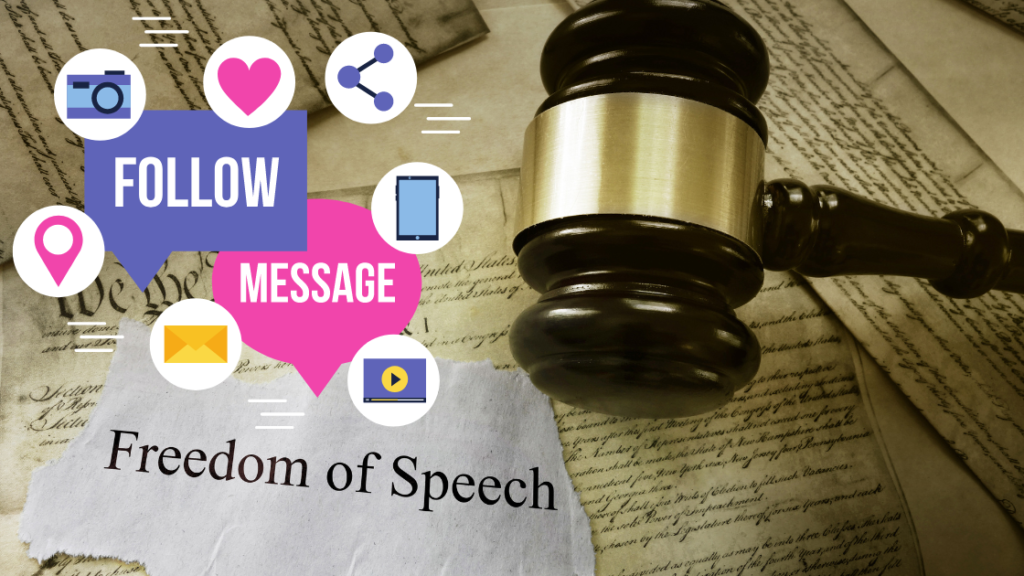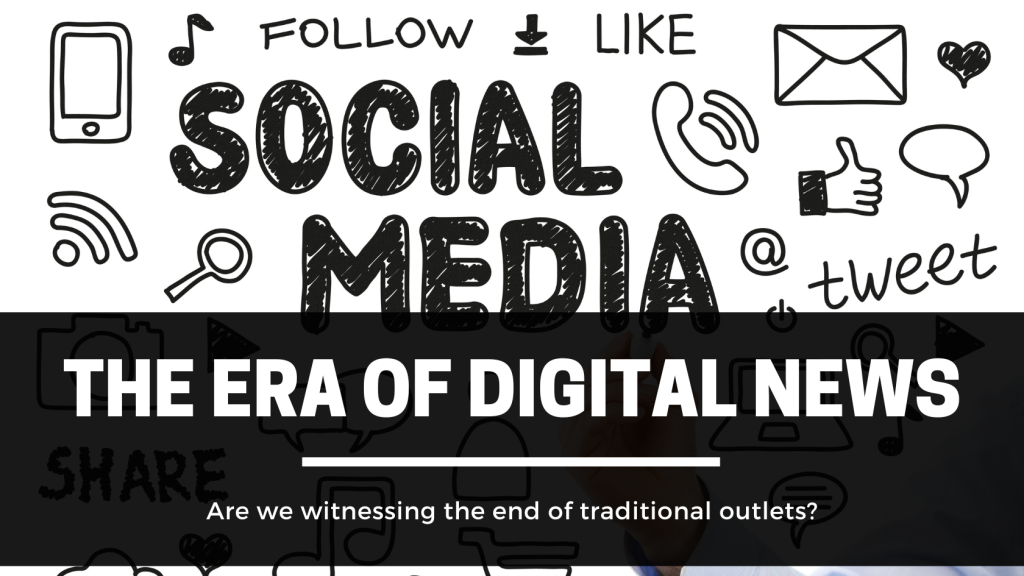The Future of Freedom of Speech on Social Media: What About UCONVO?

Freedom of speech has long been considered a cornerstone of democratic societies. It has become increasingly central to online discourse in recent years as social media has grown in popularity and influence. As technology continues to evolve, it is clear that a number of emerging trends and innovations will shape the future of freedom of speech on social media.
Balancing Freedom of Speech and AI Moderation on Social Media
One of the most significant trends impacting freedom of speech on social media is the growing use of artificial intelligence and machine learning. Artificial intelligence (AI) and machine learning (ML) are rapidly transforming many aspects of our lives, including the way we communicate and share information on social media. These technologies have the potential to play a significant role in moderating speech on social media platforms by helping to identify and remove harmful or offensive content. For example, AI and ML algorithms can be trained to recognize and flag speech that incites violence spreads hate, or contains explicit content.
However, the use of AI and ML to moderate speech on social media is not without its challenges. One of the biggest concerns is accuracy, as these technologies are still far from perfect and may make mistakes or overlook important contexts. There is also a risk that AI and ML systems could be biased, as they are only as fair and impartial as the data and algorithms that they are trained on.
Another concern is the potential for AI and ML to be used to restrict speech that is considered controversial or unpopular. For example, social media companies may use these technologies to remove speech critical to their policies or practices or to silence voices that do not align with their views or interests. There is also the risk that governments or other organizations could use AI and ML to restrict speech that they consider to be politically or socially problematic.
Given these concerns, it is clear that the use of AI and ML to moderate speech on social media must be approached with caution and transparency. Social media companies must be transparent about their policies and processes and allow for independent oversight and review of their systems. At the same time, policymakers must be proactive in ensuring that the use of AI and ML to moderate speech does not infringe on the rights and freedoms of individuals and communities.
The Pros and Cons of Decentralized Social Media for Freedom of Speech
Another significant trend is The emergence of decentralized social media platforms, and blockchain-based solutions are one of the most significant trends that will impact the future of freedom of speech on social media. These platforms offer a new model for social media, one that is built on the principles of decentralization, transparency, and accountability.
One of the critical benefits of decentralized social media platforms is that they allow users to take control of their data and ensure that their speech remains protected from censorship or interference. In addition, unlike traditional social media platforms, which are centralized and controlled by a single company or organization, decentralized social media platforms are built on a network of peers that work together to ensure the security and integrity of the network. This makes it much harder for outside entities, such as governments or corporations, to interfere with or restrict speech on these platforms.
Another important benefit of decentralized social media platforms is the new level of transparency and accountability that they provide. All content and interactions on these platforms are recorded on a public blockchain, which provides a permanent and tamper-proof record of what has been said and done. This can help to promote accountability and trust, as users can be confident that their speech and interactions will not be deleted or altered without their consent.
Despite these benefits, there are also challenges associated with decentralized social media platforms. For example, these platforms are still relatively new and untested, and it is unclear how well they will be able to scale and handle the large amounts of data and traffic that are generated by social media. There is also the risk that malicious actors could use these platforms to spread harmful or illegal speech, as it can be more difficult to detect and remove this speech on decentralized networks.
Navigating the Challenges of New Technologies for Freedom of Speech on Social Media
The rapid development of new technologies, such as AI and decentralized social media platforms, has the potential to revolutionize the way we communicate and share information on social media. However, these technologies also raise important questions and concerns about the future of freedom of speech on social media. For example, how can these platforms ensure that harmful or illegal speech is not allowed to flourish on their networks while also protecting freedom of speech and other important values, such as privacy and security?
One of the biggest challenges facing these new technologies is the need to balance freedom of speech with other important values, such as privacy and security. For example, decentralized social media platforms offer a new level of transparency and accountability. Still, they also raise important questions about the privacy of users and the security of their data. Similarly, the use of AI and machine learning to moderate speech on social media platforms has the potential to play a significant role in promoting safety and respect online, but it also raises concerns about accuracy and fairness, as well as the potential for these technologies to be used to restrict speech that is considered controversial or unpopular.
Given these challenges, it is clear that the future of freedom of speech on social media will require ongoing dialogue and collaboration between social media companies, policymakers, and the public. Social media companies must be transparent about their policies and processes and allow for independent oversight and review of their systems. Policymakers must be proactive in ensuring that the use of these technologies does not infringe on the rights and freedoms of individuals and communities. And the public must be engaged and informed about these technologies and actively participate in the ongoing conversation about their impact on freedom of speech.
What about UCONVO?
Here we simply use human moderators. Human moderators bring a level of nuance and understanding to the moderation process that AI algorithms cannot replicate. They have the ability to consider the context and cultural implications of speech and to use their judgment and empathy to make informed decisions about what speech is harmful or offensive and what speech is protected under the principles of freedom of speech.
For example, human moderators can consider the intent behind a particular piece of speech and distinguish between speech that is intended to be harmful or offensive and speech that is meant to be satirical or critical. They can also consider the cultural implications of speech, and recognize the ways in which speech can be harmful or offensive to different communities and individuals.
In addition, human moderators provide a level of transparency and accountability that is not possible with AI-based moderation systems. They are responsible for the decisions they make and the actions they take, and they can provide explanations for why certain speech has been removed or allowed to remain on the platform. This level of accountability helps to promote trust and confidence in the moderation process and ensures that users are able to understand why certain decisions have been made.
In conclusion, the future of freedom of speech on social media is one that is complex and constantly evolving. The rapid development of new technologies, such as AI and decentralized social media platforms, has the potential to revolutionize the way we communicate and share information online, but it also raises important questions and concerns about the future of freedom of speech.
As these technologies continue to evolve and shape the landscape of social media, it will be important to strike a balance between the need to protect freedom of speech and other important values, such as privacy and security. This will require careful consideration and ongoing dialogue between social media companies, policymakers, and the public.
Social media companies must be transparent about their policies and processes and allow for independent oversight and review of their systems. Policymakers must be proactive in ensuring that the use of these technologies does not infringe on the rights and freedoms of individuals and communities. And the public must be engaged and informed about these technologies and actively participate in the ongoing conversation about their impact on freedom of speech.
Human moderators play a critical role in protecting freedom of speech on social media, like uconvo.com. They bring a level of nuance, judgment, and empathy to the moderation process that is not possible with AI algorithms, and they provide a level of transparency and accountability that helps to promote trust and confidence in the moderation process. By finding a balance between the use of AI and human expertise, we can ensure that social media remains a platform for free expression and open discourse while also protecting users from harmful or offensive speech.
The goal must be to find a balance between protecting freedom of speech and ensuring that harmful or illegal speech is not allowed to spread online while also promoting fairness, accuracy, and transparency in the use of these powerful technologies. In this way, we can ensure that social media remains a platform for free expression and open discourse and that it continues to play an important role in shaping the future of our democratic societies.




Responses